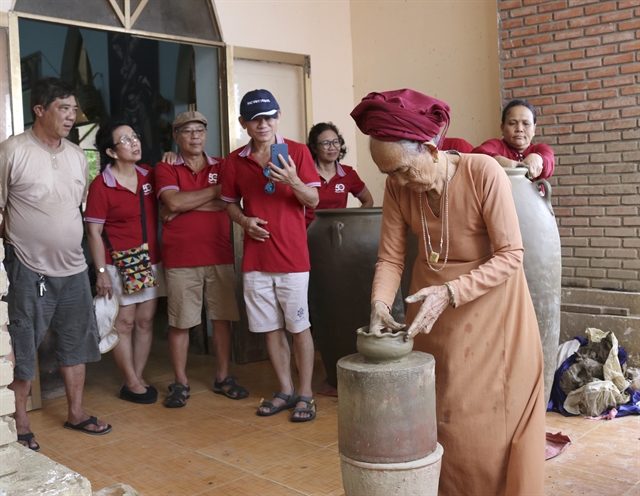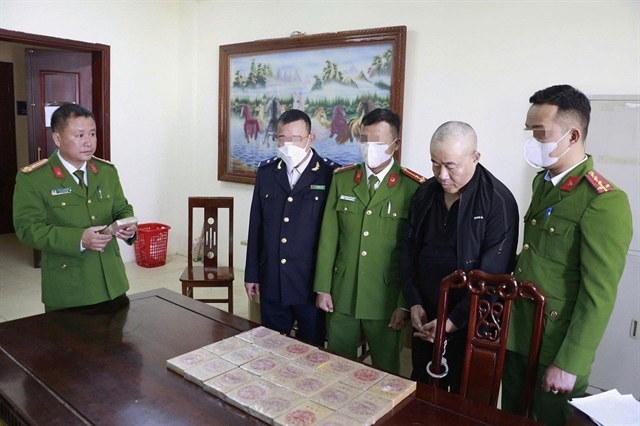 Life & Style
Life & Style


|
| WOMAN'S TOUCH: Chăm artist Trượng Thị Gạch, 78, is making ceramic creations in the Bàu Trúc Village, Ninh Thuận Province. One of Southeast Asia's oldest pottery villages, Bàu Trúc, solely allows women to produce ceramics. — VNA/VNS Photo Nguyễn Thành |
NINH THUẬN — The south-central provinces of Ninh Thuận and Bình Thuận received a certificate from UNESCO inscribing the art of pottery making of the Chăm people on the list of intangible cultural heritage.
The event was held in Ninh Thuận on Thursday with the presence of President Võ Văn Thưởng and local officials.
Deputy Prime Minister Trần Hồng Hà said at the event that the UNESCO recognition is an affirmation of Việt Nam’s cultural identity as having some of the world’s cultural heritage treasures and also shows respect for the role of women in modern society.
From now on, this art will be a common asset of humanity, he noted.
The pottery craft of the Chăm people has existed for a long time and is still maintained by the Chăm community in Bàu Trúc Pottery Village, Ninh Phước District, Ninh Thuận Province and Bình Đức Pottery Village, Bắc Bình District, Bình Thuận Province.
The Bàu Trúc Pottery Village in Ninh Thuận Province is one of the oldest ceramic villages in Southeast Asia. About 85 per cent of the village’s 400 households make pottery.
Chăm pottery products are mainly household utensils, worship objects, and handicrafts such as jars (jek), pots (gok), food trays (cambak), and vases (bilaok) .
Pottery making is considered a demonstration of the creativity of Chăm women on the basis of their community’s knowledge.
One of the most outstanding features of traditional Chăm pottery is the technique of shaping their wares by hand rather than by a wheel and their use of simple tools or shells to decorate products.
The products are not laid with enamel but dried and baked outdoors in wood and rice straw fires at about 800 degrees Celsius for seven to eight hours.
The Deputy PM called on all authorities, sectors, and the entire society to join hands in upholding UNESCO-recognised cultural heritage so that the traditional cultural values will stay with the country in its development path and contribute to the world’s culture. — VNS




